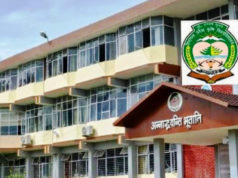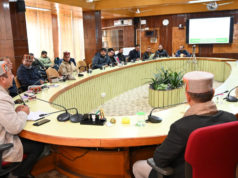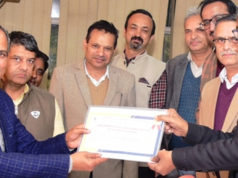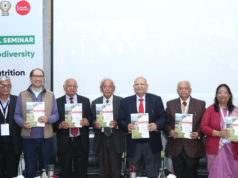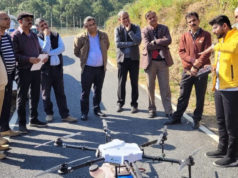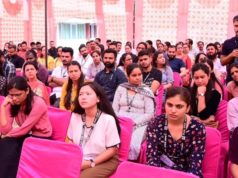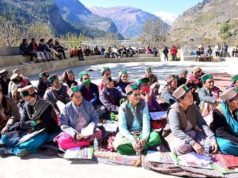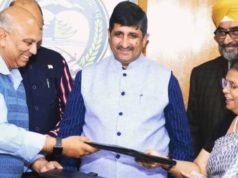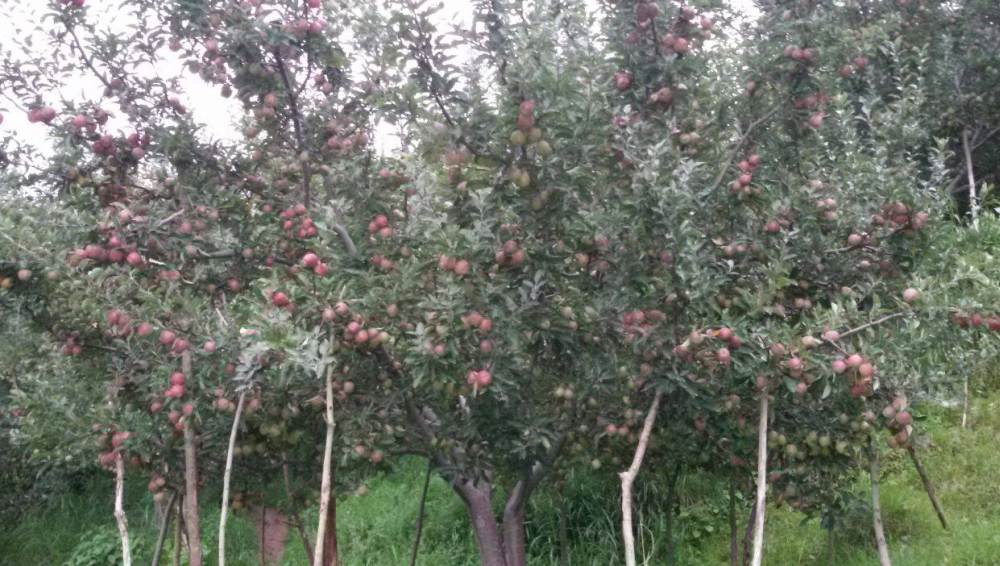Pusa Basmati-1121 being cultivated in 3500 hectares in Himachal
Palampur: Paddy sowing in northern states is in full swing. Being in high in demand, farmer are growing Basmati varieties like Pusa-1121 and Pusa-1718.
Basmati rice has harmonious combination of grain and cooking quality traits like easy digestibility and pleasant aroma and is protected under GI for its cultivation in north -western part of Indo-gangetic region covering states of Himachal Pradesh, Punjab, Haryana, Uttrakhand, Jammu and western UP.
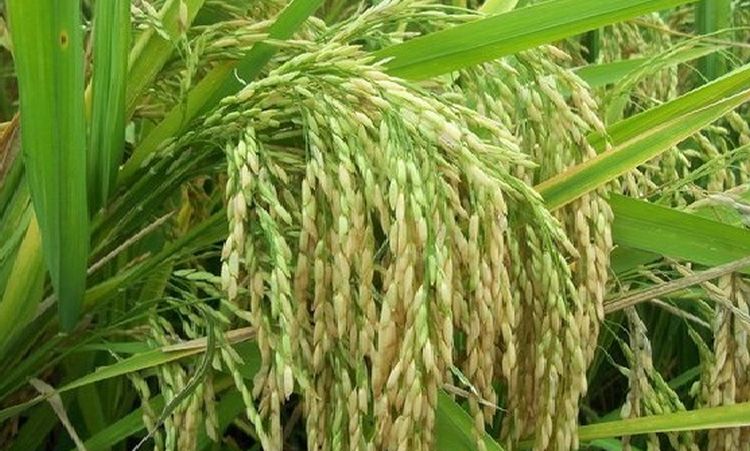
Prof A.K.Sarial, Vice-Chancellor, H.P. Agriculture University, who has the credit to develop world’s longest grain Basmati variety Pusa Basmati-1121, told that it is a multi-billion dollar forex earner variety. Pusa Basmati-1121 occupies more than 70 per cent area of total Basmati acreage in the country and contributes annually to approximate Rs. 18000 crore forex earning. It led India to attain number one position in the world since 2011 leaving behind USA, Vietnam, Thailand and Pakistan.
Prof Sarial, who received Indian Council of Agricultural Research recognition award and Jawahar Lal Nehru Award for outstanding PG research for this variety told that out of several Basmati varieties grown in Haryana, Punjab, UP, UK, J&K , and H.P., Pusa Basmati-1121 continues to be the first choice of farmers since 2008. In HP Pusa Basmati-1121 covered an acreage of 3500 hectares (20%) of the basmati area during Kharif 2019. The Palampur Agriculture University Vice-Chancellor informed
“Pusa Basmati- 1121 is an extraordinary variety characterized by extra-long grains with cooked kernel length upto 22mm, high volume expansion after cooking with a pleasant aroma. It has an average yield of 4.5 tons per hectare as compared to 2.5 ton per hectare of traditional Basmati. Because of its high profitability, excellent grain and cooking quality, it is adored by the farming community, traders and consumers.”
Pusa Basmati- 1121 is sold in more than 80 brand names like India Gate Classic, Maharani, Kohinor Gold, Shakti Bhog Prime 1121, etc.
Prof Sarial emphasised on educating farmers to restrict use of pesticides and must not use prohibited chemicals in this crop otherwise it can affect export.
He told that research work on Basmati 1121 was still in progress to incorporate resistance to insect pests and diseases so that problem of pesticide residues is permanently addressed and its production is made sustainable. Besides, genes for short duration are also being introduced to advance its maturity before the onset of low temperature in hills. He told that an improved version of Pusa Basmati 1121 that is Pusa Basmati -1718 with resistance to bacterial blight has been released by the Indian Agricultural Research Institute. He said that these two varieties have been able to reduce pesticide use and consumer safety resulting better price realization from importing countries and the domestic market. That was the reason that several rice millers and export bodies were exhorting the farmers to grow theses Basmati varieties.
Prof Sarial expressed the hope that these improved Basmati varieties can help Basmati farmers in doubling their income.



